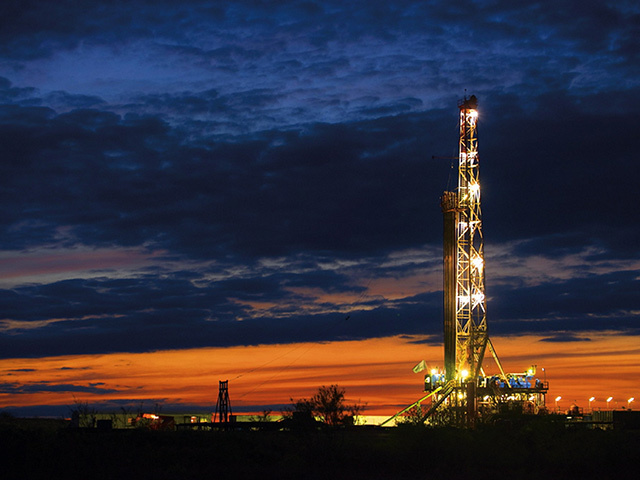
There is little or no chance of the UK replicating the shale gas and oil successes of the US; it does not offer a cheap panacea for the country’s developing energy crisis.
A study just published by Chatham House paints a grim picture of a Government seduced by the allure of shale and an industry woefully equipped to take on the challenge.
Moreover, the hoped-for energy revolution will not happen overnight; it has taken 20 years for the US industry to get to where it is today and Nritian has barely taken its first steps.
The US revolution also happened because of a “unique mix of conditions that will be difficult to replicate” in the UK.
The report’s author Paul Stevens warns of serious environmental consequences, especially from fugitive emissions of methane gas, a far more deadly greenhouse gas than carbon dioxide.
Further, he is dubious of government’s ability to pull public opposition round, especially given the fracking issue and outright distrust of Westminster, despite the compensation scheme recently announced.
Stevens warns that the sharply rising output of shale gas that has led to the dramatic fall in US domestic prices since 2008 and delivered a huge boost to American manufacturing, especially in petro-chemicals, is not possible in Britain and that it is the reason why the Treasury is such a fan.
“Such optimism is very much misplaced,” says Stevens.
“The UK is physically linked into the European gas market via the Bacton Interconnector. Therefore, if UK prices fall, once the gap with higher European prices is large enough, gas begins to flow to the higher price market, pushing up UK prices.
“As European prices rose after 2010, gas flowed from the United Kingdom to Europe, thus pushing up UK prices.
“In the US case there is no market for lower-priced gas so the price stays low, though this could change if the US begins to export substantial quantities of LNG.
“Equally, the large gas suppliers in the UK are very unlikely to leave any money on the table for consumers. The idea that a UK shale gas revolution would lead to significantly lower gas prices is a myth.”
Sustaining the gloomy note of the report, Stevens points out that the capacity of the UK service industry to undertake onshore shale operations is “very weak”, with few drilling rigs and even fewer units that can hydraulically fracture.
“In the Barnett shale play in the United States 199 rigs were drilling at the height of operations in 2008, while there were only 34 rigs in all of Western Europe in 2010.
“Estimates in Poland (initial European leader), where the service industry is in a similar state to that in the UK, suggest a shale well costs three times more than in the US.”
He points out too that the relative costs of energy alternatives are equally uncertain.
The future of the UK nuclear industry is uncertain, while the future of LNG markets is very controversial because of the fall-out from the shale gas revolution in the US and its potential replication elsewhere.”
Methane monster
Methane a lot deadlier than CO2 . . . some 70 times more potent over a 20-year period, according to Stevens.
And if fugitive emissions from shale operations are high, this could affect climate change policies.
“Producing shale gas, because it is more energy-intensive, will produce more CO2 than conventional gas, but studies by the Tyndall Centre at the University of Manchester suggest the extra is insignificant, at only 4% more.
“The key issue is what energy source might be replaced by shale gas. If coal or oil is replaced, given methane emits less CO2 than either – roughly half the emissions of coal for the same energy content – obviously this would reduce the UK’s carbon footprint.”
In the US, shale gas is displacing coal from power generation; an irony being that the replaced coal is being exported to and burnt in Europe.
Another warning from Stevens is that renewable energy could be wrongly blamed for high energy prices.
“There is a serious danger that UK consumers, growing increasingly concerned about their domestic energy bills, may press for shale gas to substitute for renewables which they see (probably incorrectly) as being responsible for these higher energy bills.
“This would be bad news for carbon reduction targets if it had an impact on the drive for renewables. Ultimately, methane produced by shale gas operation is a hydrocarbon and while it emits less than coal or oil, it still emits CO2.”
Hoped for security of supply benefits also appear to be another myth in the making for the UK despite the supposed possibility of diversification of sources of gas supply, moreover domestic.
But if sufficient domestic shale gas were to materialise, Stevens argues that this could “enhance the bargaining power” of the UK when negotiating long-term gas supply contracts.
But it is also potentially vulnerable.
“It is always tempting to assume domestic supplies are more secure than foreign imports, but this may not be the case as successive miners’ strikes in the UK and threats of industrial action by French nuclear engineers have illustrated,” Steven adds.
Recommended for you
